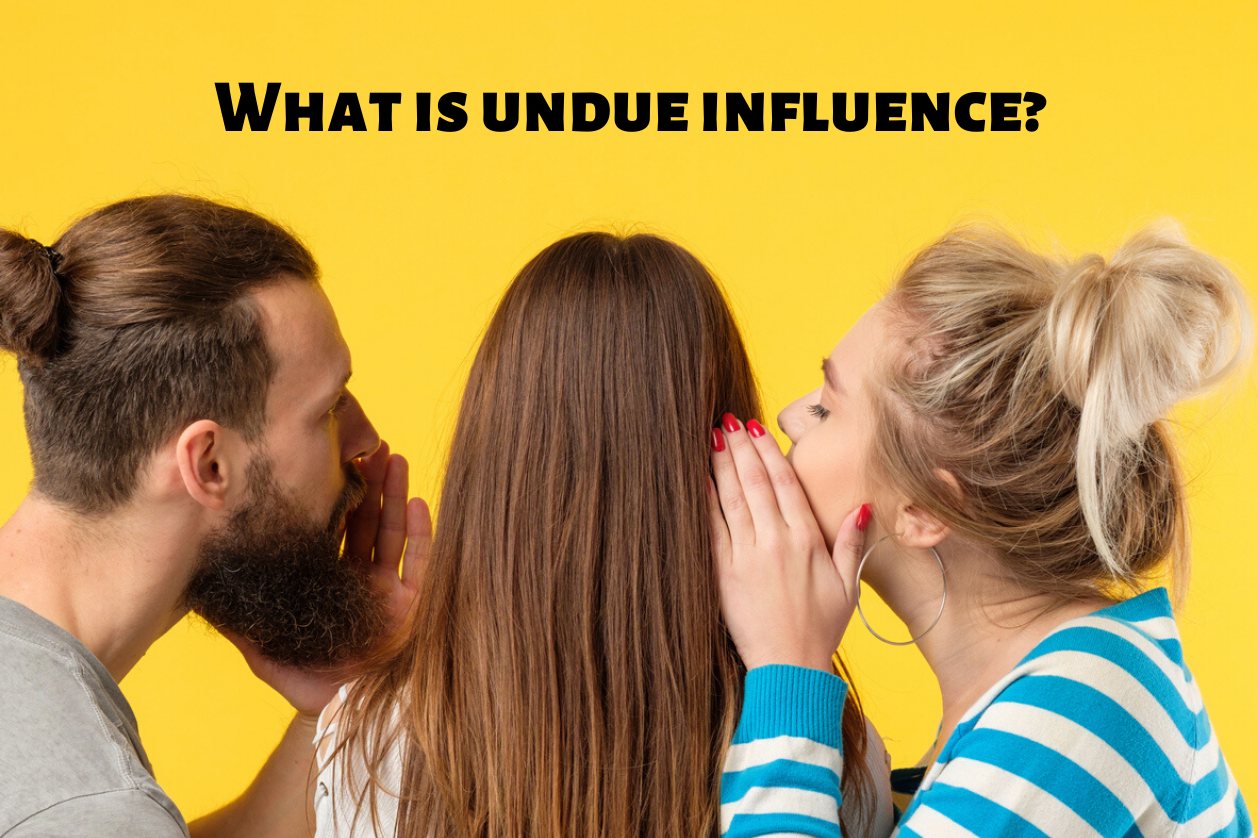
Undue influence is when a bad person exercises their power over and elderly person and gets the elderly person to give them extra assets, or to cut the other beneficiaries out.
The problem that undue influence is generally difficult to prove directly. Generally, a person will not admit they coerced someone into changing a Trust or Will. Undue influence is often done behind closed doors, and not documented or observed by others. Is it often difficult to present the court with direct evidence that undue influence occurred.
Proving undue influence often involves the presentation of circumstantial evidence. Circumstantial evidence is evidence that is not drawn from a direct observation of a fact, but rather relies on an assumption. In contrast, direct evidence supports the truth of a fact based on direct observation. For example, if an eyewitness directly observes a bad person re-writing an elderly person’s Trust or Will to disinherit the elderly person’s children, the witness’s testimony would be direct evidence. If nobody directly witnesses the bad actor’s coercion, court must look at the factors surrounding the change to the person’s Trust or Will.
The factors that can be considered include:
- How vulnerable was the victim?
- If the victim was older than 65, they are considered an elder under California law, which can make them more susceptible to undue influence.
- If the victim suffered from cognitive impairment, such as a stroke, Alzheimers or dementia, they are more vulnerable.
- How much authority did the influencer have over the victim?
- If the influencer had control over the victim’s finances or physical care, the influencer may have had a great deal of authority over the victim.
- What tactics did the influencer use to coerce the victim?
- Did the influencer control medications or care for the victim?
- Did the influencer use emotional manipulation such as intimidation, withholding affection or coercion?
- Did the influencer initiate changes to the person’s estate plan?
- Was the result unfair?
If you file an undue influence claim, you have the obligation to present evidence to the court to prove the influencer used manipulation to convince the elderly person to change their Will or Trust. However, if you can prove the following three things, the obligation (or burden) shifts to the influencer to prove they did not engage in undue influence:
- The influencer was in a confidential relationship with the elder.
- The influencer actively participated in creating changing the Trust or Will.
- The influencer unfairly benefitted from the change in a Trust or Will.
For more information on the presumption of undue influence, see our “Presumed Guilty…Don’t let it happen to you!” article and video.
The bottom line: undue influence is very common, but difficult to prove. Generally, the bad person is influencing the elder in secrecy.
